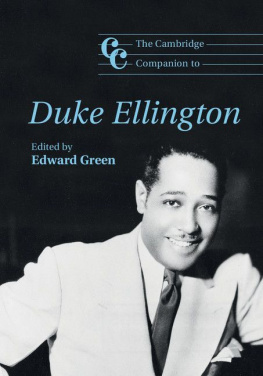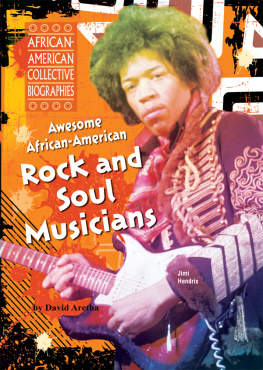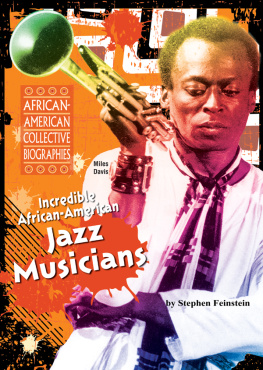
AFRICAN-AMERICAN
MUSICIANS
CLAUDETTE HEGEL
TITLES IN THIS SERIES
AFRICAN-AMERICAN ACTIVISTS
AFRICAN-AMERICAN ARTISTS
AFRICAN-AMERICAN EDUCATORS
AFRICAN-AMERICAN MUSICIANS
AFRICAN-AMERICAN SCIENTISTS AND INVENTORS
AFRICAN-AMERICAN WRITERS AND JOURNALISTS
AFRICAN AMERICANS IN BUSINESS
AFRICAN AMERICANS IN LAW AND POLITICS
AFRICAN AMERICANS IN THE MILITARY
AFRICAN AMERICANS IN RADIO, FILM, AND TV ENTERTAINMENT
AFRICAN AMERICANS IN SPORTS
A HISTORY OF THE CIVIL RIGHTS MOVEMENT
 | Mason Crest
370 Reed Road, Suite 302
Broomall, PA 19008
www.MasonCrest.com |
Copyright 2013 by Mason Crest, an imprint of National Highlights, Inc.
All rights reserved. No part of this publication may be reproduced or transmitted in any form or by any means, electronic or mechanical, including photocopying, recording, taping, or any information storage and retrieval system, without permission from the publisher.
Printed and bound in the United States of America.
CPSIA Compliance Information: Batch #MBC2012-4. For further information, contact Mason Crest at 1-866-MCP-Book.
First printing
1 3 5 7 9 8 6 4 2
Library of Congress Cataloging-in-Publication Data
Hegel, Claudette.
African-American musicians / by Claudette Hegel.
p. cm. (Major black contributions from emancipation to civil rights) Includes bibliographical references and index.
ISBN 978-1-4222-2374-1 (hc)
ISBN 978-1-4222-2387-1 (pb)
1. African AmericansMusicHistory and criticismJuvenile literature.
2. Popular musicUnited StatesHistory and criticismJuvenile literature.
3. African American musiciansJuvenile literature. I. Title.
ML3479.H44 2012
780.8996073dc23
2011051949
Publishers note: All quotations in this book are taken from original sources, and contain the spelling and grammatical inconsistencies of the original texts.
Picture credits: Library of Congress: .
AFRICAN-AMERICAN
MUSICIANS

CLAUDETTE HEGEL

MASON CREST
PHILADELPHIA
TABLE OF CONTENTS
by Dr. Marc Lamont Hill,
Institute for Research in African American Studies at Columbia University.

Dr. Marc Lamont Hill
I t is impossible to tell the story of America without telling the story of Black Americans. From the struggle to end slavery, all the way to the election of the first Black president, the Black experience has been a window into Americas own movement toward becoming a more perfect union. Through the tragedies and triumphs of Blacks in America, we gain a more full understanding of our collective history and a richer appreciation of our collective journey. This book series, MAJOR BLACK CONTRIBUTIONS FROM EMANCIPATION TO CIVIL RIGHTS, spotlights that journey by showing the many ways that Black Americans have been a central part of our nations development.
In this series, we are reminded that Blacks were not merely objects of history, swept up in the winds of social and political inevitability. Rather, since the end of legal slavery, Black men and women have actively fought for their own rights and freedoms. It is through their courageous efforts (along with the efforts of allies of all races) that Blacks are able to enjoy ever increasing levels of inclusion in American democracy. Through this series, we learn the names and stories of some of the most important contributors to our democracy.
But this series goes far beyond the story of slavery to freedom. The books in this series also demonstrate the various contributions of Black Americans to the nations social, cultural, technological, and intellectual growth. While these books provide new and deeper insights into the lives and stories of familiar figures like Martin Luther King, Michael Jordan, and Oprah Winfrey, they also introduce readers to the contributions of countless heroes who have often been pushed to the margins of history. In reading this series, we are able to see that Blacks have been key contributors across every field of human endeavor.
Although this is a series is about Black Americans, it is important and necessary reading for everyone. While readers of color will find enormous purpose and pride in uncovering the history of their ancestors, these books should also create similar sentiments among readers of all races and ethnicities. By understanding the rich and deep history of Blacks, a group often ignored or marginalized in history, we are reminded that everyone has a story. Everyone has a contribution. Everyone matters.
The insights of these books are necessary for creating deeper, richer, and more inclusive classrooms. More importantly, they remind us of the power and possibility of individuals of all races, places, and traditions. Such insights not only allow us to understand the past, but to create a more beautiful future.


A modest African-American church stands in the middle of a South Carolina cornfield, 1930s. In the southern states before the Civil War, black slaves who had been converted to Christianity developed a new way to worship through religious songs known as spirituals. This uniquely African-American form of music would have a great influence on subsequent genres of American music.
M usic has always been an important part of peoples lives. It provides a powerful way to express our feelings. It helps us mark special occasions, whether they are happy (such as a wedding) or sad (such as a funeral).
Of course, music isnt just for special occasions. It is also a big part of everyday life. It entertains. It can inspire us as we work or exercise. It can be an enjoyable background as we relax by ourselves or hang out with friends.
AFRICAN AMERICANS AND AMERICAN MUSIC
American music has been shaped by many influences. Thats hardly surprising. The country was settled by waves of immigrants from around the world. These immigrants brought with them the culture of their old lands, including distinct musical traditions. In America, the various traditions met and blended. Over time, new forms of musical expression emerged.
African Americans played a vital role in this process. Popular musical genres (types) such as jazz, blues, rock n roll, and hip-hop were pioneered by African-American musicians. These genres tapped elements of the rich musical traditions of Africa. And they grewat least in partout of the unique experience of blacks in America.
Unlike other groups of immigrants, blacks didnt come to America willingly. Between the early 1600s and the early 1800s, an estimated 2 million black Africans were brought to American shores as slaves. Emancipationthe freeing of the slavesoccurred as a result of the Civil War. But emancipation didnt mean equality for African Americans. The Civil War ended in 1865. Yet for another hundred years, laws and unwritten social rules, especially in the South, kept black people from participating fully in American society.
Next page















